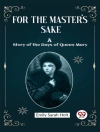In ‚The Story of Katharine Howard, ‚ Ford Madox Ford delves into the tumultuous life of one of Henry VIII’s most infamous queens. Through a rich tapestry of prose characterized by Ford’s trademark psychological insight and lush descriptive style, the narrative unveils Katharine’s tragic trajectory from youthful innocence to her horrifying end. The novel captures the intricate political machinations of Tudor England, intermingled with themes of desire, betrayal, and the quest for identity, positioning Katharine as a poignant representation of the systemic oppression faced by women in a patriarchal society. Ford Madox Ford, a prominent literary figure of the early 20th century, was deeply influenced by his interest in history and the complexities of human relationships. His experience as a war correspondent and a leading figure in modernist literature imbued his writing with a depth and nuance that speaks to the socio-political climate of his time. Ford’s exploration of Katharine Howard’s character reflects his own understanding of the fragility of human existence and the societal forces that shape it, making this novel a natural extension of his life’s work. I highly recommend ‚The Story of Katharine Howard‘ to readers seeking a historically rich narrative interwoven with profound character studies. Ford’s masterful storytelling not only illuminates the life of Katharine Howard but also invites readers to reflect on broader themes of gender and power. This engrossing work is essential for anyone interested in the interplay of history and fiction.
Über den Autor
Ford Madox Ford, originally named Ford Hermann Hueffer, was a prolific English novelist, poet, critic, and editor, whose literary work left a lasting imprint on modernist writing. Born on December 17, 1873 in Merton, Surrey, Ford came from a background enriched with music and literature; his father was a music critic and his grandfather the famed Pre-Raphaelite painter Ford Madox Brown. He changed his last name to Ford Madox Ford in 1919, in honor of his grandfather. Ford’s opus spans over 80 works, including fiction, poetry, criticism, and autobiography. He is perhaps best known for ‚The Good Soldier‘ (1915), a novel distinguished by its narrative technique and insight into Edwardian moral ambiguity. Another significant contribution is the four-part series ‚Parade’s End‘ (1924-1928), which many consider one of the finest novels about World War I. ‚The Story of Katharine Howard‘ (1964) underlines Ford’s preoccupation with history and his adept storytelling that combines fact with fiction. Ford also founded the transatlantic review, a literary magazine that published works by then-unknown writers who would later become eminent, such as Ernest Hemingway and James Joyce. Ford Madox Ford’s modernist approach, his experimentation with narrative forms, and his psychological depth characterize a legacy that has had a profound impact on twentieth-century literature.












